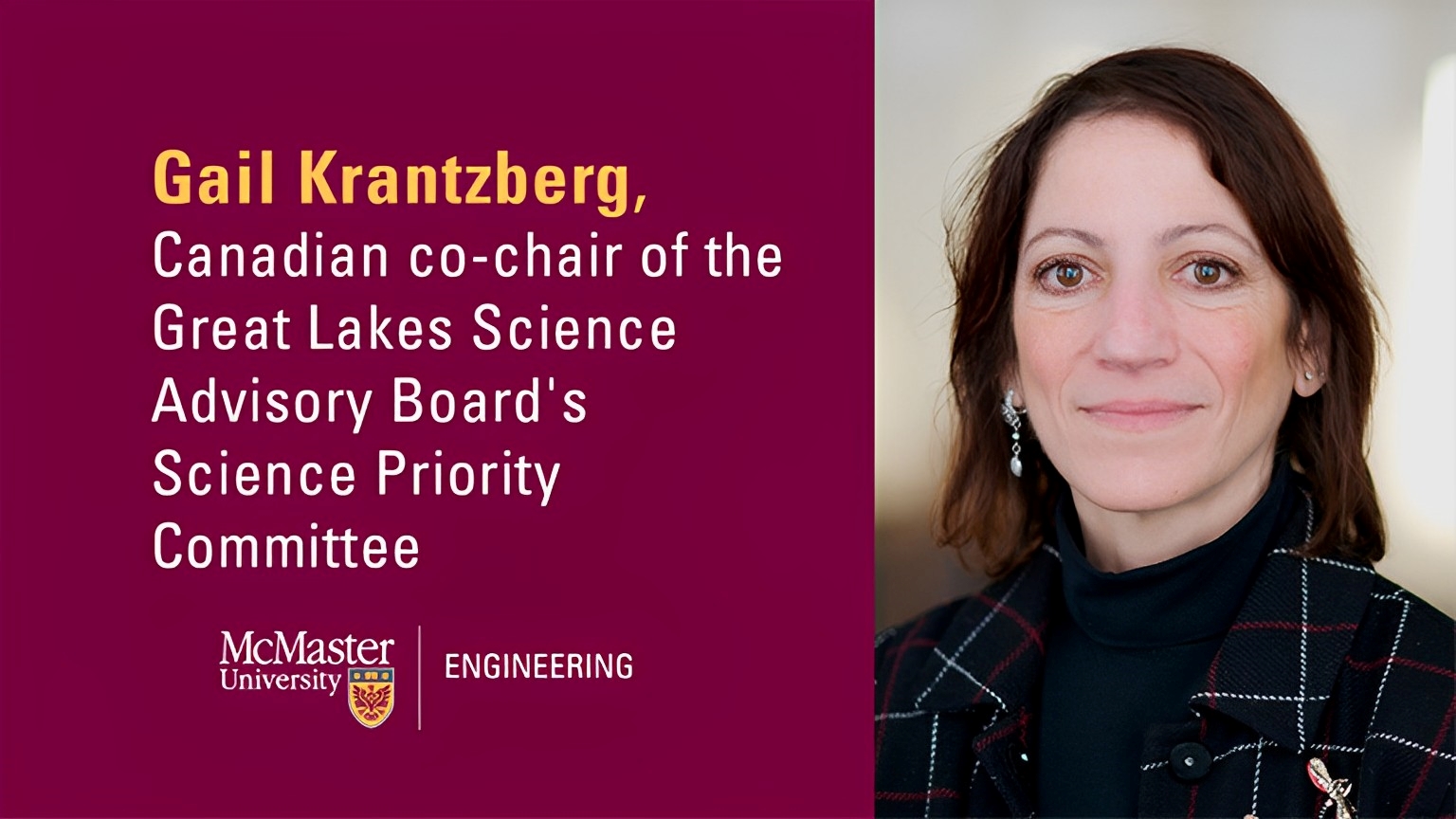

Starting today, Gail Krantzberg will co-lead the International Joint Commission’s Great Lakes Science Advisory Board’s Science Priority Committee (SAB-SPC) for one year.
Krantzberg is a professor at the W. Booth School of Engineering Practice and Technology whose research focuses on the Great Lakes, environmental restoration science and public policy.
“As a new co-chair of the Science Priority Committee, I look forward to keeping a razor-sharp focus on science findings that will advance the state of our Great Lakes,” says Krantzberg, who was named to the Great Lakes Science Advisory Board in 2019.
The Board provides advice on research to the International Joint Commission and to the Great Lakes Water Quality Board. It also provides advice on scientific matters to various levels of government.
It conducts most of its work through its two standing committees, the Science Priority Committee and the Research Coordination Committee.
As a co-chair, Krantzberg will ensure that the committee’s membership is diverse and represents a broad spectrum of disciplines, key projects move forward, and that the commissioners provide actionable recommendations to the Canadian and U.S. governments related to the Great Lakes.
Over the last year, Krantzberg pivoted her research to use wastewater surveillance to track COVID-19.
This work, done in collaboration with colleague and wastewater expert Zobia Jawed, has been featured in media outlets including TVO’s The Agenda with Steve Paikin, The Windsor Star and CBC.
“COVID-19 in wastewater surveillance is essential to tracking the growth or decline of the pandemic associated with various health measures, including vaccination, reopening the economy and bringing students back to campus,” she says.
“A broad wastewater testing system allows us to constantly monitor, test and accurately report on the spread of disease within communities, which would include nursing homes, schools and universities, to address the crucial need not only for the current pandemic but for future outbreaks.”


